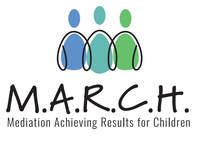|
ABSTRACT
DIFFERENTIATING BETWEEN FORGIVENESS OF SELF AND OTHERS Name: Glasener (Kuhlman), Dawn E. University of Dayton 2002 Advisor: Dr. Mark Rye This study examined the relationship between self-forgiveness, forgiveness of others, and mental health. It also explored how self-forgiveness and forgiveness of others differ. Participants (N = 108) were recruited from a medium-sized Midwestern Catholic university. Participants answered self-report questionnaires concerning forgiveness of self and others, dispositional predictor variables (guilt, shame, religiousness, self-consciousness), and mental health (anger, depression, self-esteem). As hypothesized, self-forgiveness was negatively related to depression and self-consciousness and positively related to self-esteem. Forgiveness of others was negatively related to state anger, trait anger, and depression. Both self-forgiveness and forgiveness of others contributed uniquely to the prediction of depression. Furthermore, guilt and shame were negatively correlated with both self-forgiveness and forgiveness of others. However, guilt contributed uniquely to the prediction of both self-forgiveness and forgiveness of others, whereas shame uniquely predicted only dispositional self-forgiveness. Contrary to hypotheses, religious orientation was not related to any of the forgiveness measures. Study limitations are discussed. "Differentiating Between Forgiveness of Self and Others" - Thesis (PDF Version) "Forgiveness of Others Scale" (PDF Version) "Forgiveness of Self Scale" (PDF Version) |
"The Impact of Forgiveness on Your Mental Health" - Recording
Johnson County Community College Ed Talk with Dawn Kuhlman December 3, 2021 **Requires password "IMPACT" to view "The Impact of Forgiveness on Your Mental Health" - PowerPoint
Johnson County Community College Ed Talk with Dawn Kuhlman December 3, 2021 |
|
M.A.R.C.H. Mediation - your one-stop-shop for all things mediation - service, trainings, and research.
M.A.R.C.H., Inc. is a collaborative effort with the Missouri Department of Social Services, Division of Family Support. M.A.R.C.H., Inc. is a 501(c)(3) nonprofit organization, which does accept voluntary contributions from corporate sponsors and private individuals to help promote mediation education and public awareness. |




